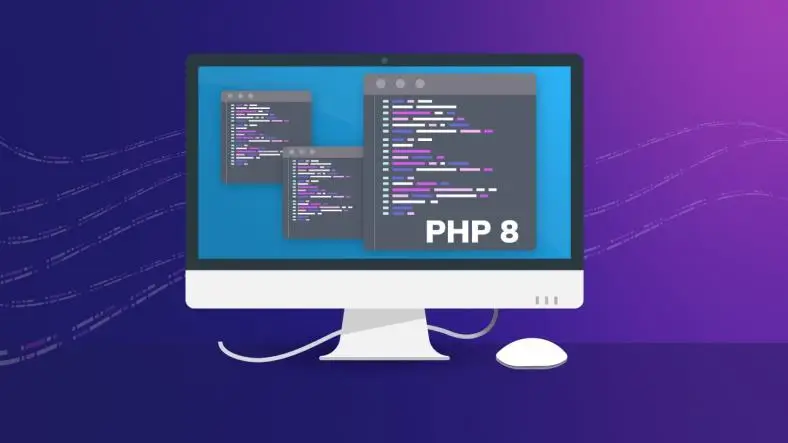PHP 8, released on November 26, 2020, introduces significant improvements and new features that enhance performance, syntax and overall developer experience. This version emphasizes performance optimizations, new language features and better error handling, streamlining the development process and providing developers with more tools to write clean, efficient code.
Key Differences Between PHP 8 and PHP 7
Just In Time (JIT) Compilation:
- PHP 8 introduces JIT compilation, which can significantly improve performance for CPU-intensive applications.
- While not all applications will see dramatic performance gains, benchmarks show improvements in scenarios involving complex calculations.
Union Types:
- PHP 8 supports union types, allowing a function to accept multiple types for a single parameter.
function foo(int|string $value) {
// ...
}
Attributes (Annotations):
- PHP 8 introduces attributes (also known as annotations), enabling developers to add metadata to classes, methods and properties.
#[Route('/api', methods: ['GET'])]
function api() {
// ...
}
Constructor Property Promotion:
- This feature simplifies the declaration of class properties by combining property declaration and constructor assignment.
class User {
public function __construct(
public string $name,
public int $age,
) {}
}
Match Expression:
- PHP 8 introduces the match expression, which is similar to switch but with safer semantics and the ability to return values.
$result = match($input) {
1 => 'One',
2 => 'Two',
default => 'Unknown',
};
Named Arguments:
- This feature allows passing arguments to a function based on the parameter name, rather than the order.
function createUser($name, $age) {
// ...
}
createUser(age: 25, name: 'John');
Nullsafe Operator:
- The nullsafe operator (?→) allows you to safely access properties or call methods on an object that might be null. If the object is null, it will return null instead of throwing an error.
$user = null;
$name = $user?→getName(); // Returns null instead of causing an error
Saner String to Number Comparisons:
- PHP 8 improves string to number comparisons to behave more predictably, reducing unexpected behavior in comparisons.
- This aligns the behavior more closely with developers' expectations.
var_dump('100' == 100); // true (as expected)
var_dump('100' <=> 100); // 0 (equal)
Static Return Type:
- PHP 8 allows methods to declare that they return the same type as the class they belong to using static.
class ParentClass {
public static function create(): static {
return new static();
}
}
New String Functions:
- PHP 8 introduces new functions like str_contains(), str_starts_with() and str_ends_with(), making string manipulation easier.
if (str_contains($haystack, $needle)) {
// ...
}
Consistent Type Errors for Internal Functions:
- PHP 8 enhances type safety by ensuring that internal functions throw TypeError exceptions when provided with incorrect argument types. This change helps developers identify type-related bugs more easily.
- This leads to improved error handling and consistency across the language.
// Now, passing the wrong type throws a TypeError:
strlen([]); // Throws TypeError in PHP 8
Improved Error Handling:
- PHP 8 introduces new error handling improvements, including the Error class hierarchy.
- Errors are now more consistent and TypeError is thrown for invalid argument types, making debugging easier.
Improvements to Type System:
- PHP 8 includes improvements to type hints and type checks, allowing for more robust and flexible code.
Conclusion
PHP 8 represents a significant advancement for the language, providing developers with new tools and features that enhance both productivity and performance. The key differences from PHP 7 not only improve the language's capabilities but also help maintain PHP's relevance in modern web development. Upgrading to PHP 8 is recommended to leverage these enhancements and write cleaner, more efficient code. Features like consistent type errors for internal functions, the nullsafe operator and saner string to number comparisons further improve the robustness and predictability of your code, making it easier to work with various data types and catch potential issues early in development.
Thanks for reading the article, for more Science and Technology related articles read and subscribe to peoples blog articles.

![OnePlus Buds Pro 3 Bluetooth TWS in-Ear Buds - Dual Drivers, Dual DACs, Dynaudio EQs, Up to 50dB Adaptive Noise Cancellation, Up to 43Hrs Battery [Lunar Radiance] OnePlus Buds Pro 3 Bluetooth TWS in-Ear Buds - Dual Drivers, Dual DACs, Dynaudio EQs, Up to 50dB Adaptive Noise Cancellation, Up to 43Hrs Battery [Lunar Radiance]](https://m.media-amazon.com/images/I/61dVOVxHn3L._SX679_.jpg)













